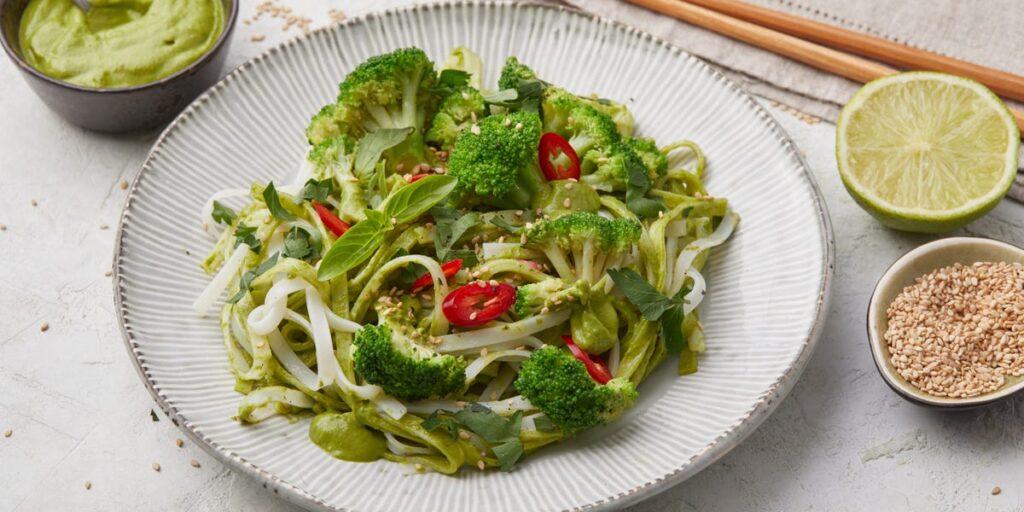X
Bluesky
Copy link
Impact Link
Save
Saved
Read in app
subscribers. Become an Insider
and start reading now.
Have an account? .
- Nutrition scientist Kevin Hall has changed the way we view ultra-processed foods and metabolism.
- His research aims to make healthy eating easier in America.
- In a new book, Hall explains how everyday additions and radical policy shifts could help us eat better.
For his entire career, nutrition researcher Kevin Hall has asked scientific questions that go straight to the heart of how to make America healthy.
His government lab was one of the few places in the country where researchers conducted the kinds of nutrition trials that could answer fundamental questions about why our food is making us sicker and fatter. He discovered ultra-processed foods drive us to eat more, and studied the shifting metabolisms of contestants on “The Biggest Loser.”
Now, five months after an early retirement from the National Institutes of Health, saying in a lengthy statement posted on X that he had experienced “censorship” and “meddling in our research,” he’s diving into nutrition questions like never before.
Hall’s new book, “Food Intelligence,” co-authored with health journalist Julia Belluz, charts his own recipe for making America healthy — or, at least, building a healthier diet and food environment for Americans.
In the book, Hall traces the history of nutrition fads back more than 200 years, and aims to give readers the food intelligence to evaluate shoddy or shaky nutrition claims. For the first time in his career, Hall also weighs in on food policy.
Here are some of Hall’s suggestions for improving America’s diet right now — a mix of practical ideas for people at home and policy recommendations.
1. Add more veggies into each bite
Hall recently isolated one key factor that may determine why we eat roughly 500 extra calories per day on ultra-processed diets.
To get foods to be more shelf-stable and avoid contamination, manufacturers often suck the moisture out of them. In general, this means there are more calories loaded into each bite of an ultra-processed food.
Hall calls this concept “energy density,” and in his studies, regardless of whether a meal is ultra-processed or not, he’s seen that if it includes more calories per gram, it can effortlessly lead to overeating.
To solve this, he suggests adding more vegetables — fresh or frozen — into your ultra-processed meals. Vegetables are low-calorie, filling, and nutrient-dense.
Making dinner in a rush? Go ahead and pour some ultra-processed marinara over a bunch of grilled veggies, then pair it with some whole-grain pasta, making a veggie-rich, lower-calorie dish ready in minutes.
“It’s made a much more tasty meal that now has lots of vegetables in it,” he said. “You’re using ultra-processed products to help make it easier for people to stick to the kinds of diets that nutrition scientists have recommended for a very long time.”
2. Tax junk foods like sodas, candy, and cookies
Sugary drinks like soda, juice, candy, refined grains, and processed meats have been linked for decades to all kinds of bad health outcomes, including obesity, cancer, and death.
Hall’s book suggests a higher tax on these foods. The government, he says, could use that tax revenue to promote and subsidize healthy replacements, making them more affordable and attractive.
Trump’s US Health and Human Services Secretary, Robert F. Kennedy Jr., hasn’t suggested a junk food tax, but he has suggested that sugary drinks and junk foods should be ineligible for SNAP benefits, the food stamps that low-income people, seniors, and people on disability benefits use to buy groceries.
3. Give tax credits to supermarkets that stock healthy foods
This may create a stronger upstream demand on manufacturers to offer healthier products, the book argues.
4. Bring Americans ‘healthy pizza’
Hall said manufacturers could also reformulate some of our favorite convenience foods to make them healthier and more nutrient-dense.
In the book, the authors point to the example of a “healthy pizza” served in Scottish schools, made with wholemeal wheat flour and seaweed. It’s high in fiber and protein but low in sugar and salt.
5. Get rid of tax breaks for junk food
Hall doesn’t think we should flatly demonize all ultra-processed foods or assume that everything natural is safe, non-toxic, and good for us.
“Look, it’s not an oxymoron to say that you can have a healthy ultra-processed food,” Hall told Business Insider.
Still, we should be putting up guardrails, especially when it comes to kids, he said.
In fact, US consumers subsidize the commercials for sugary cereals that kids see in between their cartoons. “A lot of people don’t realize that in America, food companies can write off their expenses for research, development, and marketing, which is often predatory marketing to children of unhealthy products,” Hall said.
“You could stop that relatively straightforwardly with a new law,” he continued, “but allow that for products that met the FDA definition of ‘healthy’ and weren’t ultra-processed, hyper-palatable, high energy-dense products.”
6. Put cigarette-style warning labels on junk food
Other countries, such as Chile, Mexico, and Peru, already do this for things like candy and soda, slapping warnings on the front of containers.
7. Let everyone eat like Google employees
Hall proposes eliminating some restrictions on food stamps and letting people use SNAP to buy more healthy, prepared foods. He and his co-author, Belluz, are both busy parents who know how challenging it can be to cook from scratch every night.
Why not subsidize take-out restaurants “serving healthy prepared meals at competitive prices in underserved neighborhoods,” he asks?
This is not that different from what Google offers its workers at the office already.
“What if we decided that, like clean drinking water, access to delicious, convenient, healthy meals was considered an essential human right instead of a Silicon Valley employee perk?” the book asks. “Making healthy foods the accessible, prominent, and affordable default for everyone.”
Read the full article here
















